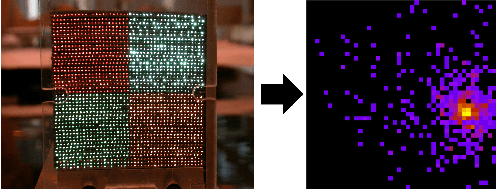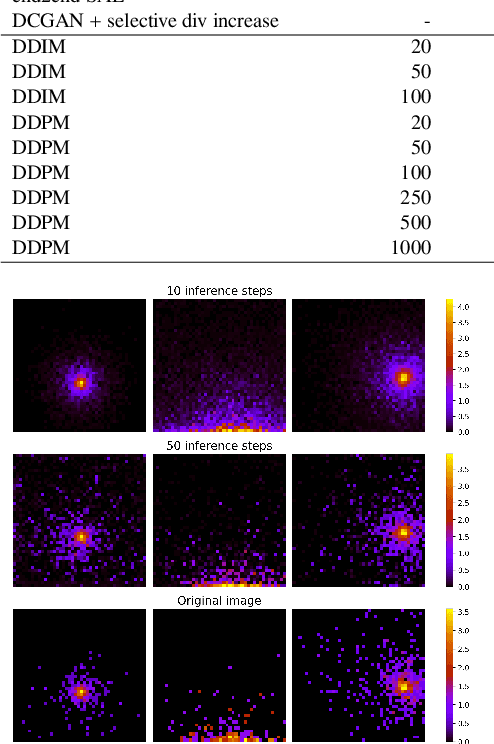Mikołaj Kita
Generative Diffusion Models for Fast Simulations of Particle Collisions at CERN
Jun 05, 2024


Abstract:In High Energy Physics simulations play a crucial role in unraveling the complexities of particle collision experiments within CERN's Large Hadron Collider. Machine learning simulation methods have garnered attention as promising alternatives to traditional approaches. While existing methods mainly employ Variational Autoencoders (VAEs) or Generative Adversarial Networks (GANs), recent advancements highlight the efficacy of diffusion models as state-of-the-art generative machine learning methods. We present the first simulation for Zero Degree Calorimeter (ZDC) at the ALICE experiment based on diffusion models, achieving the highest fidelity compared to existing baselines. We perform an analysis of trade-offs between generation times and the simulation quality. The results indicate a significant potential of latent diffusion model due to its rapid generation time.
 Add to Chrome
Add to Chrome Add to Firefox
Add to Firefox Add to Edge
Add to Edge